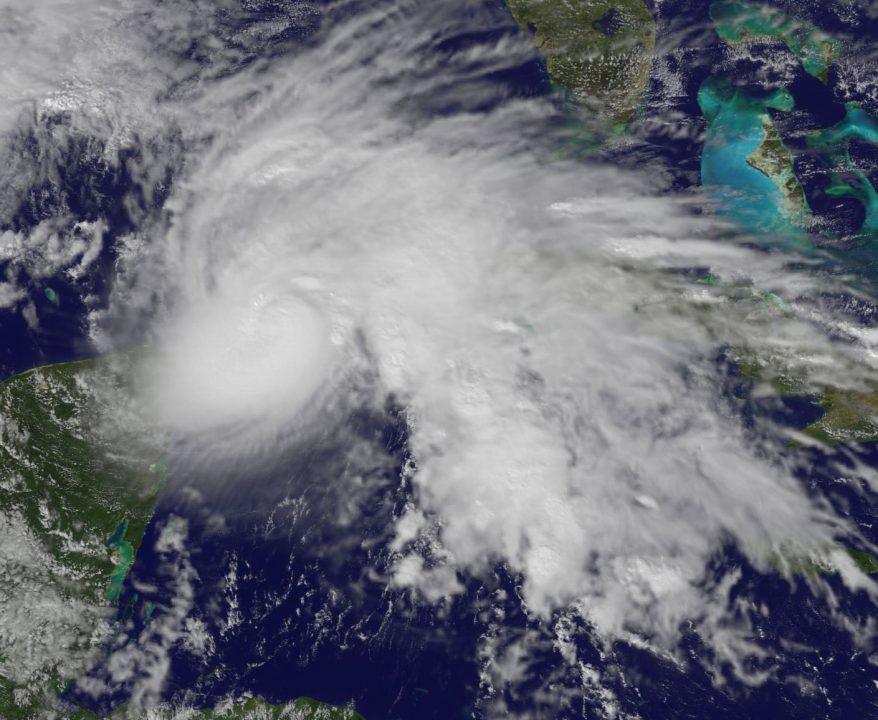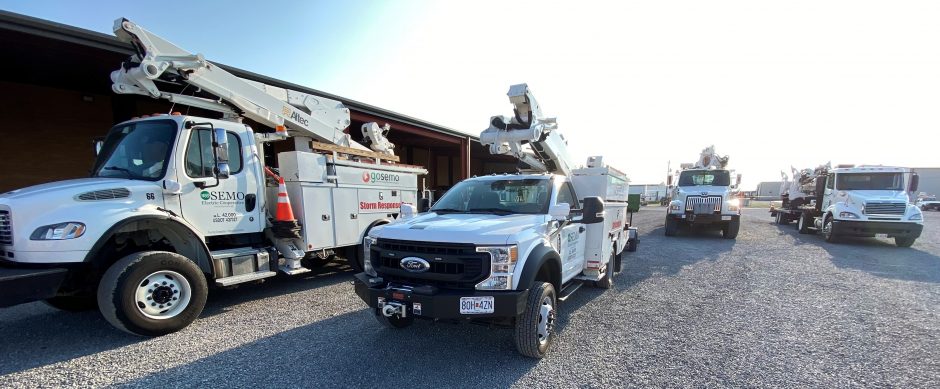Electric co-ops in the US are working on restoring power after the devastating impact of Hurricane Ida.
The storm, which took four lives and left one million Louisiana and Mississippi residents without power, made landfall as a Category 4 storm in Louisiana on Sunday, 29 August, and moved north into Mississippi on Monday before weakening into a tropical depression.
One of the most powerful storms ever to hit the US Gulf coast, the hurricane led to damages that will take months to repair. Co-ops in seven other neighbouring states are providing mutual assistance to those in Louisiana and Mississippi.

According to a report by the US National Rural Electric Association (NRECA), restoring power and rebuilding electric infrastructure damaged by the storm will take weeks or longer. Among the most affected Louisiana co-ops are South Louisiana Electric Cooperative Association (SLECA), Dixie Electric Membership Corp (DEMCO) and Washington-St Tammany Electric Cooperative.
SLECA said this would be the largest power restoration effort in its 83-year history, adding that remote and hard to access areas were among the worst hit. The co-op estimates that full power restoration could take weeks if not longer to complete.
“In addition to SLECA’s linemen we have a total of 742 additional line workers and tree trimmers from across the country who are being housed in a large tent city, said . Specialised equipment and material are also located at the tent city,” SLECA General Manager Joe Ticheli said SLECA general manager Joe Tichelit.
“As we begin this historic rebuilding process, a systematic approach designed to get the most assets and consumers back up in the least amount of time is being used. It has been more than a generation since we had Hurricane Gustav but the damage was nothing remotely compared to Hurricane Ida, which was many times more destructive.”
DEMCO CEO and general manager Randy Pierce also expects the restoration to take weeks: 60 transmission poles and over 300 three-phase poles are down, affecting an estimated 60,000-80,000 members. The largest electric co-operative in Louisiana, DEMCO has over 112,000 members.
“Powering up following a weather incident happens the same way every time,” said Mark Phillips, director of operations. “The order of restoring power is by function, not by choice.”
The co-op will first work to repair transmission lines which supply power to substations. After transmission towers are back up, attention will shift to the substations. This will be followed by restoration to the distribution system happens next, distribution poles and main distribution lines, which service critical infrastructure such as hospitals, water towers and sewer treatment plants.
“There’s a lot of major work that has to happen before line crews can get to repairing lateral taps which branch from the main lines that serve the streets and neighbourhoods,” he added.
DEMCO will receive support from co-ops in Missouri who are sending 173 lineworkers to Louisiana to assist in the cleanup. Furthermore, Missouri is sending both construction and service crews to help with the power restoration efforts at the co-op. This is not the first time Missouri’s electric co-ops have shown solidarity in action.

Missouri crews first helped with hurricane relief efforts in 2004 when the Gulf Coast was hit by Hurricane Ivan. They continued to support other co-ops including in 2020 when crews traveled to Louisiana twice for hurricanes Delta and Zeta. Likewise, in 2007 and 2009, other co-ops travelled to Missouri to support them after ice storms. Missouri’s restoration efforts are being led by the Association of Missouri Electric Cooperatives, which represents all 47 of Missouri’s electric co-operatives.
“It is an honour and a blessing to help those suffering in Louisiana. We are praying for all involved – especially those suffering without essential services, those traveling to help and those working in difficult and hazardous conditions,” said Sean Vanslyke, CEO and general manager of SEMO Electric, one of the Missouri co-ops sending linemen to Louisiana.
Meanwhile, WSTE in Louisiana says it is making “slow and steady” progress. The co-op says it will work “as quickly and safely as possible” to bring members back online but full power restoration is expected to take weeks to complete.
“We have assembled a force of 340 line workers and contractors from across the nation to support what will be the second largest power restoration efforts in our history,” said CEO Charles Hill. “As we begin this historic rebuilding process, a systematic approach designed to get the most assets and members back up in the least amount of time is used. We thank our members for their continued patience.”
In Mississippi outages on co-op systems were reduced from 88,000 on Sunday to 55,000 statewide, according to the Electric Cooperatives of Mississippi. NRECA expects many co-op members in Mississippi to have power restored by week’s end, but adds that some restoration work could take longer.
Meanwhile, the credit union sector has been working to assist its members and colleagues in affected areas.
The Credit Union National Association (CUNA) reports that the Louisiana Credit Union Foundation is preparing to issue cash grants to colleagues affected by Hurricane Ida. Around 80 credit unions across the state are shut down, according to the League.
CUAid grants, administered by the National Credit Union Foundation, are available for credit union employees and board members to assist with immediate disaster relief needs, such as out-of-pocket costs that may result from being evacuated.
Federal regulator NCUA (National Credit Union Administration) says is ready to help credit unions maintain or restore services to their members if necessary. It can can provide urgent needs grants of up to $7,500 to low-income credit unions that experience any sudden costs to restore operations because of the hurricane.

